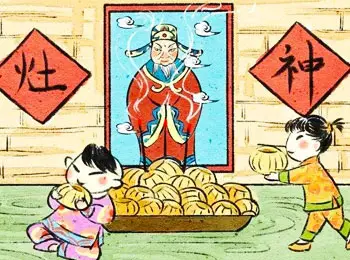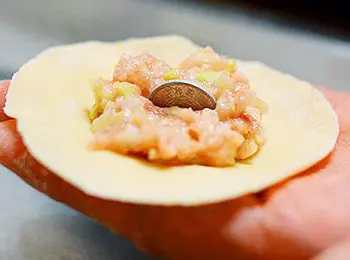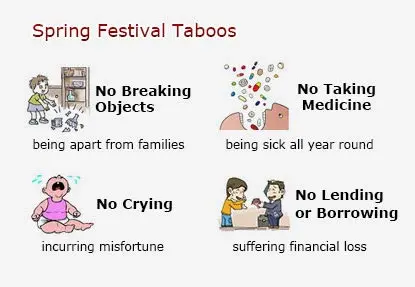9 Things 99% of People don’t Know about Chinese New Year
Chinese New Year, one of the most widely celebrated festivals in the world, is almost known to all for its commonly seen red lanterns, firecrackers, and tradition of eating dumplings. Here we don't talk about things that everyone already knows. The following are 9 cool facts that 99% of people don't know about the Chinese New Year will make you sound smart.
No set date for Chinese New Year
The first thing most people don’t know is that Chinese New Year, also known as the Spring Festival, the date of which is not fixed. Because the Chinese New Year follows the Lunar Calendar, the date changes every year and it always falls on a day between January 21 and February 20. In 2019, it falls on February 5.![]() Read more about Chinese New Year Dates & Calendar.
Read more about Chinese New Year Dates & Calendar.
There might be two Chinese New Year festivals in a year.
Although strange, but it is true! There might be two Chinese New Year festivals. Strictly speaking, the Chinese calendar follows the Lunisolar calendar which is much different with Gregorian calendar. In the Gregorian calendar, there is only one leap day on February 29 added almost every four years, but the Chinese calendar inserts a leap month every three years. When there is a leap month after the 1st lunar month, there will be two Chinese New Year festivals. It is very rare. According to the calendar, the most recent one will be in 2262.
3
Lucky money was not money at first.
Many people may know what the lucky money is, but most people don’t know it was not money at first. During Chinese New Year, the children and young people will receive lucky money in red envelopes as gifts from the elders. The lucky money is also called “Yasuiqian” in Chinese, which means the money can help to protect children against evil spirits. The earliest lucky money appeared in the Han Dynasty (202 BC - 220) and it was a kind of good luck charm made in shape of a coin. Gradually, it has been replaced by real money and now represents good luck and best wishes.
Avoid visiting others on the 3rd day of the New Year.
According to the traditional customs, people need to avoid visiting others on the 3rd day, which is also called “the day of the Red Dog”. The Red Dog is the God of Anger in Chinese myth, so people are more likely to quarrel with others on this day. It also has been regarded an unlucky day and going outside will meet unlucky things. However, this old tradition is more popular in south China and being ignored gradually. No wonder that even some Chinese don't know this custom.
No rice on the 3rd day of the New Year
Rice is a staple food of Chinese people. According to the tradition, the 3rd day of Chinese New Year was regarded as the birthday of the rice and people should not eat rice on this day. If someone breaks the rule, it would lead to a decrease of the grain production. This custom implies that Chinese people attach great importance to agriculture and cherish food. Then what do people eat on that day? The answer is “Hezi”, which is a kind of pasta prevalent in Northern China. Also, in some places, people will choose to eat dumplings.![]() Traditional Chinese New Year Food in Different Areas
Traditional Chinese New Year Food in Different Areas
6
Correct hand gesture for New Year greeting
Hand gestures for New Year greeting is very important etiquette for Chinese people. Make sure you have made a correct hand gesture or it will be very rude. The gestures are a little different between ladies and gentlemen. Gentlemen need to make a twist with right hand and put the left hand over it. In Chinese culture, right hand means attacking. But when covered by left hand, it shows a good will. As for ladies, the position is opposite. It is a key about the position of hands. Since once they are reversed, the meaning will be completely different.
7
New Year's first week represented by different animals
The first week of the New Year is represented by rooster, dog, pig, sheep, ox, horse, and human in sequence, and every day people celebrate the different animals. This is a fact most people don't know about the Chinese New Year even for some local Chinese people. The old saying comes from a Chinese mythology, in which a Goddess named Nvwa created animals and human in seven days successively. So this is a celebration of the birth of animals and human.
8
The 10th day of the New Year is the birthday of stone.
The 10th day of the Chinese New Year has also been called the “Day of Stone”. It is regarded as the birthday of stone. For showing respect to stone, people are not allowed to move any stone or use any stone tools, or the crops will be damaged by the God of Stone. In some places, there is a custom of worshipping the stone and sacrifice some baked pancakes. Today, the tradition is still popular in some rural areas.
9



